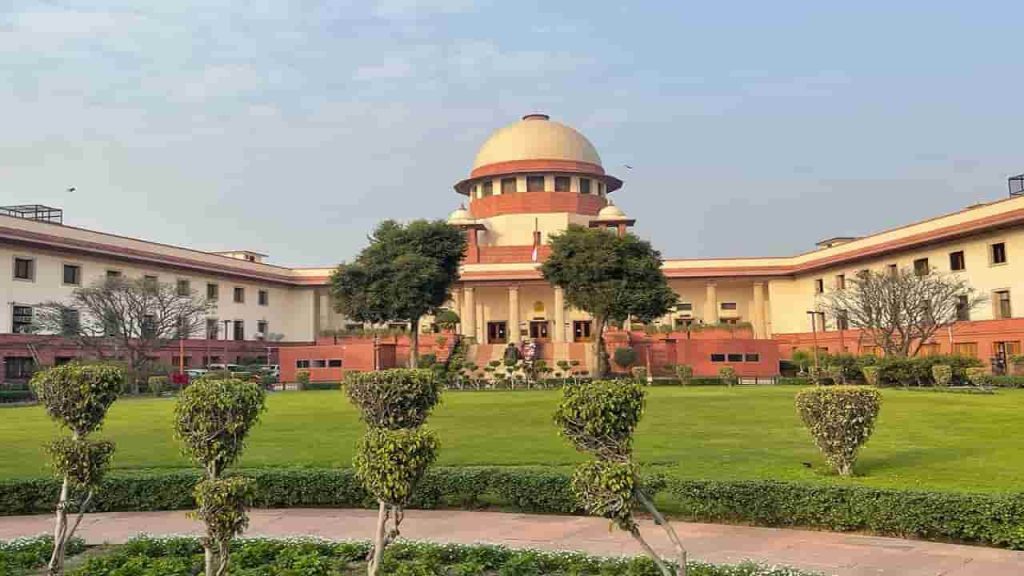The Central government on Wednesday told the Supreme Court that despite its 2017 verdict declaring the practice of triple talaq as unconstitutional, reports showed that it was still being practised in different parts of the country.
Filing an affidavit in response to the petitions challenging the Muslim Women (Protection of Rights on Marriage) Act 2019, Solicitor General Tushar Mehta said the verdict in Shayara Bano case did not lead to any decrease in the instances of triple talaq, since it very much existed in different parts of the country.
The SG stressed on the need for state intervention to help victims of such divorces, stating that despite the Constitution Bench judgment in Shayara Bano case and assurance of the All India Muslim Personal Law Board, there have been reports of divorce by way of talaq-e-bidat from different parts of the country.
The SG apprised the Apex Court that Muslim Women (Protection of Rights on Marriage) Act 2019 was introduced to protect the rights of married Muslim women being divorced by way of triple talaq by criminalising the Act with imprisonment up to three years.
He said despite the Constitution Bench’s judgment in Shayara Bano case, setting aside the practice of talaq-e-bidat, and the assurance of the All India Muslim Personal Law Board, there have been reports of divorce by way of talaq-e-bidat from different parts of the country.
He noted that the Apex Court judgement of 2017, wherein it set aside talaq-e-bidat, has not worked as any deterrent in bringing down the number of divorces by this practice among certain Muslims.
In order to give effect to the order of this Court and to redress the grievance of victims, the Union government introduced the 2019 Act, said the SG.
He further said that even though the All India Muslim Personal Board had agreed to prescribe the guidelines introduced in the Shayara Bano case to control the practice of Triple Talaq, media reports showed that the practice continued unabated.
On August 22, 2017, in the Shayara Bano vs Union of India and Ors case, the Apex Court had declared ‘talaq-e-bidat’ or any other similar form of talaq having the effect of instantaneous and irrevocable divorce pronounced by a Muslim husband as unconstitutional.
On July 31, 2019, Parliament passed the Muslim Women (Protection of Rights on Marriage) Act, 2019, criminalising the pronouncement of divorce in such a manner and prescribing a punishment of up to three years imprisonment for the same.
A bunch of petitions had challenged the constitutional validity of this Act before the Supreme Court, alleging that it was violative of Articles 14,15,21 and 25 of the Constitution.
The affidavit said that despite the victims of Triple Talaq approaching police for redressal of their grievance, the latter was helpless as no punitive action could be taken against husbands indulging in the practice, even though it had been declared unconstitutional by the Apex Court.
It further said that before this Act was passed, the only recourse available to Muslim women was the Protection of Women from Domestic Violence Act, 2005, which was ineffective against the instantaneous and irrevocable practice of talaq. This created a need for a standalone legislation penalising the practice, it added.
The SG questioned the maintainability of the petitions on the ground they challenged the validity of the Muslim Women (Protection of Rights on Marriage) Bill 2019, which has now become an Act, thus making the matter infructuous.
He said the Court’s power was limited to assessing the constitutionality of the legislation and that it had no power to go into the ‘wisdom of measure’.
The affidavit by the Union of India also said that the court cannot interfere with a legislation that has made punishable an act that the Court has already declared to be violative of Article 14 of the Constitution.
The SG said the Act protected the rights of married Muslim women, who were being divorced by triple talaq. It further helped in ensuring the larger constitutional goals of gender justice and gender equality of married Muslim women.
The Act helped in subserving the fundamental rights of non-discrimination as also their empowerment, it added.
(Case title: Amir Rashadi Madani vs Union of India)


